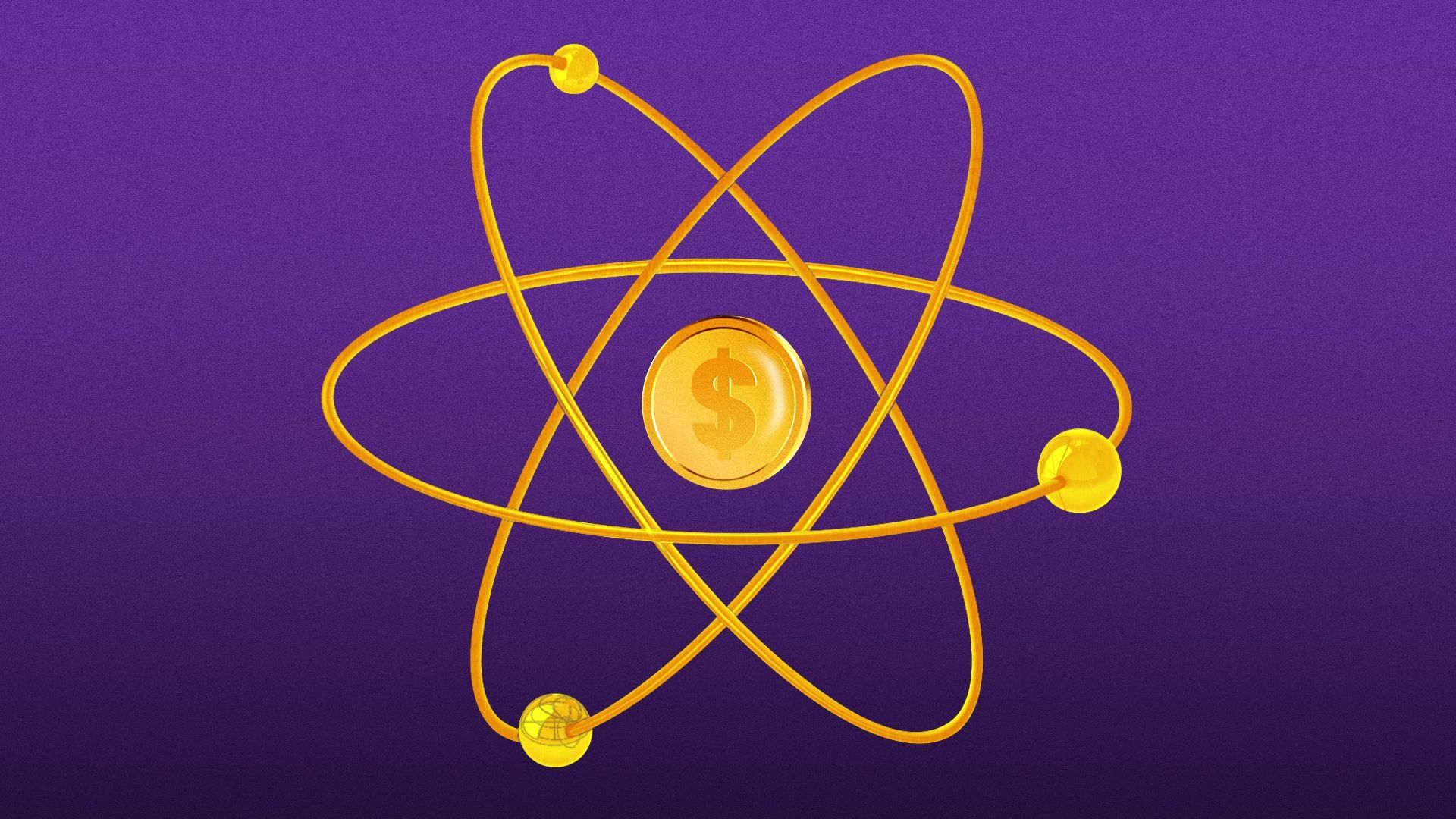TVA OKs $200M for reactor development
Add Axios as your preferred source to
see more of our stories on Google.

Illustration: Shoshana Gordon/Axios
The Tennessee Valley Authority board of directors voted 5-0 on Thursday to spend up to $200 million to prepare for the potential construction of a nuclear-powered small modular reactor (SMR) designed by GE Hitachi.
Why it matters: The approval is the latest sign of rapidly accelerating momentum for advanced nuclear energy companies and projects.
Current activities include:
- The SMR developer NuScale planning to go public via SPAC this year;
- The province of Ontario announcing in December it had selected GE Hitachi to build a BWRX 300 megawatt SMR in Canada, the same model that the TVA on Thursday said it intended to pursue for "potential deployment."
- And, advanced fission designs from Kairos, X-Energy, and TerraPower (the latter backed by Bill Gates) continue proceeding.
The big picture: For decades, nuclear energy was the single-largest source of zero-emissions electricity in the U.S., accounting for about a fifth of the nation’s electricity generation overall. But that ended in 2020. The causes of nuclear’s loss of leadership include:
- Building new nuclear plants faced soaring costs, years long licensing, permitting and construction delays, and persistent concerns about safety and security.
- Costs of natural gas and renewable energies plummeted.
Yes, but: In the mid-2000s, private companies such as NuScale and others quietly began exploring advanced nuclear technologies – including small modular reactors, even tinier microreactors, and waste-free fusion power.
What’s happening: The funds, which cover about 10% of the expected cost of building an SMR, would go toward the pre-application process for the Nuclear Regulatory Commission. The reactor, if built, could begin operation as soon as 2032.
"This is a significant step in our decarbonization strategy at TVA," TVA president and CEO Jeff Lyash said after the vote. "It’s also important to note that it’s not a commitment to build – we don’t have the information to make that commitment yet."
What they’re saying: The announcement drew mixed reviews from energy watchers.
- “We’re at the most exciting moment ever for advanced nuclear reactors. We have a wave of announcements of major policy support, of big utility investments in this space, of the capital markets finally coming around to advance nuclear,” says Rich Powell, CEO of ClearPath.
- Sasha Mackler, head of the Energy Project at the Bipartisan Policy Center, says, “We have a big energy system — there are important, significant gaps that need to be filled — and nuclear looks to be very well-positioned to fill those gaps in a climate-friendly and safe way.”
- Edwin Lyman, director of nuclear power safety at the Union of Concerned Scientists says, “There’s probably less than meets the eye. The story is that the industry has been trying to get traction now for a few decades using climate change and any other argument that they can muster.”
What we’re watching: The U.S. still has yet to develop a long-term answer for disposing of nuclear waste.
- The NRC, at the direction of Congress, is several years into developing new regulations that are technology-neutral, in order to speed the approval of SMRs and other advanced reactors. However, those new rules may not be finalized before further SMR applications reach the agency for review.
- “Being technology neutral is hard when you’re going from very small to very big, and you’re using different fuels and different technologies,” says Amy Roma, senior non-resident fellow, Atlantic Council.
Alan Neuhauser will co-author our upcoming Climate Tech Deals newsletter. Join the waitlist now.
